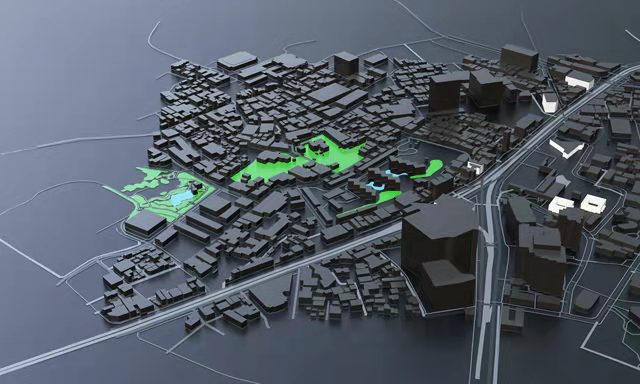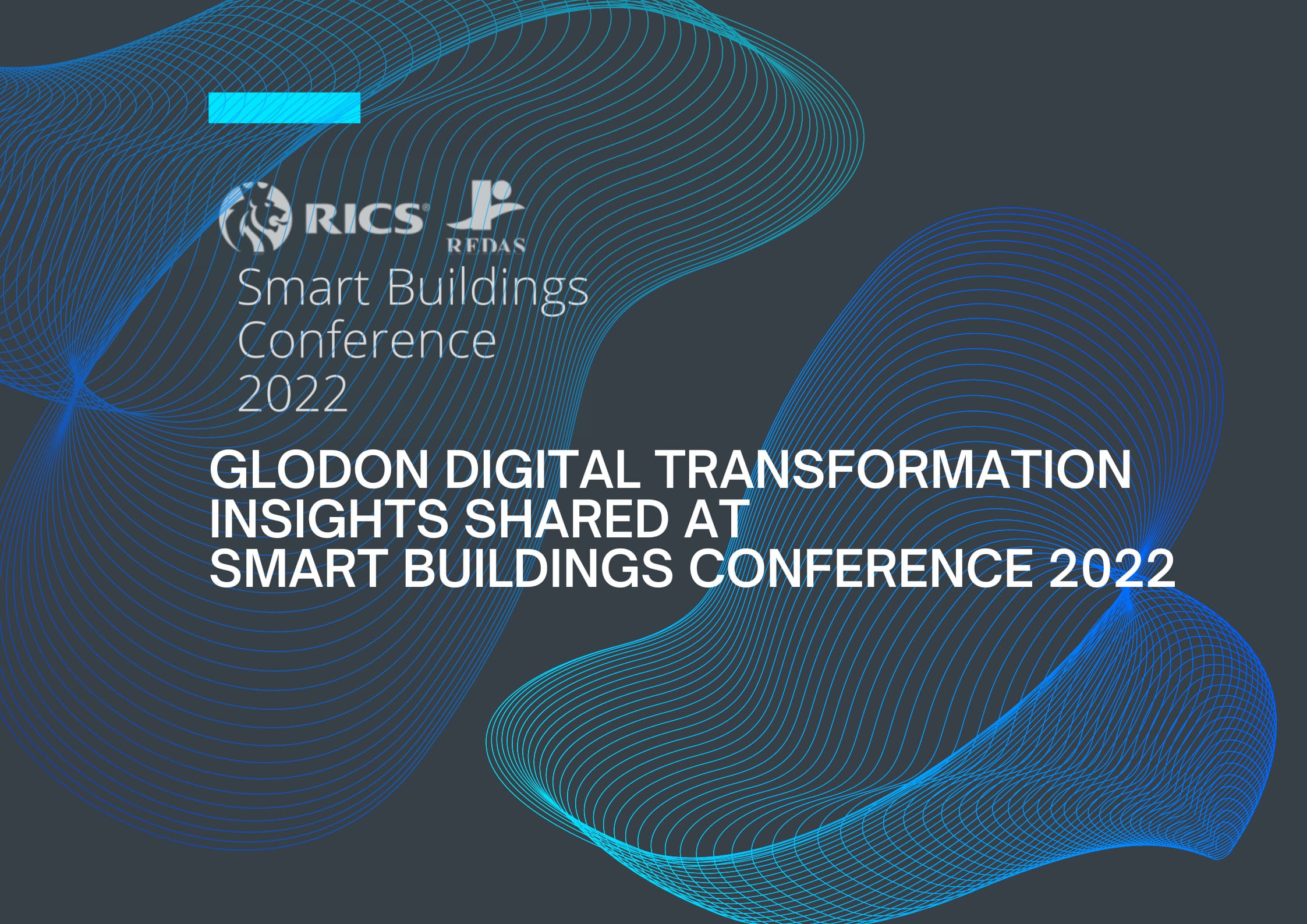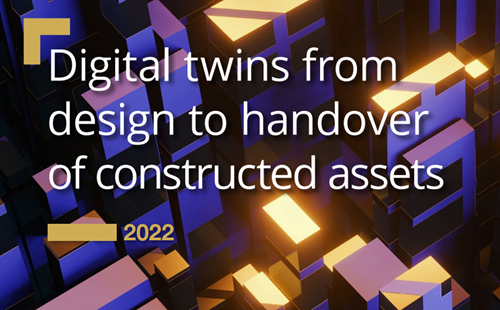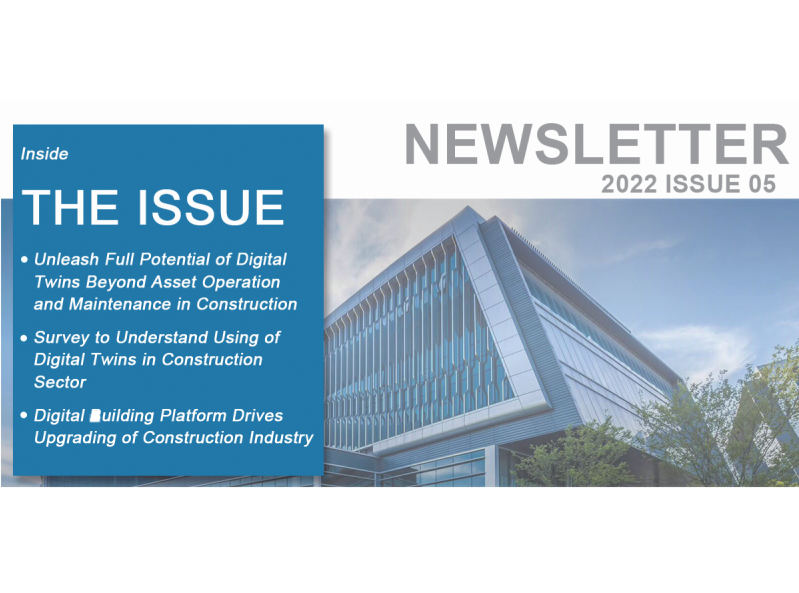Mar 27.2023
Technology Trends to Watch: The Transformation of the Construction Industry through Digitalisation
Data and digital technologies have revolutionised many industries, and the construction industry is no exception. These technologies have revolutionised how we design, build, and operate buildings. In order to implement digitalisation successfully in construction projects, all stakeholders must be considered and the benefits of digital tools must be leveraged for sustainable growth.
"Digitalisation is revolutionising the construction industry, and to stay ahead, stakeholders must embrace cutting-edge trends like Digital Twins, integrated platforms, modular construction, and IoT devices. It's time to transform how we design, build, and operate buildings for a sustainable future." said Cristina Savian.
There are several trends to watch for long-term success as industry goals and technology keep evolving.
Moving Beyond BIM to Digital Twins
As one of the most widely used digital tools in the construction industry, Building Information Modelling (BIM) allows construction teams to create digital models of buildings that can be used to visualise and plan construction projects. As powerful as BIM is for planning and designing buildings, Digital Twins take this concept to the next level by creating a virtual replica of the building that can be used for monitoring, analysing, and optimising its performance. Digital Twins can be used to predict and prevent potential problems before they occur, which is one of their major advantages. As a result, building owners and operators can optimise performance, reduce costs, and improve user experiences. We can expect to see even more innovative applications of Digital Twins in the construction industry as more data becomes available and analytical tools become more sophisticated.
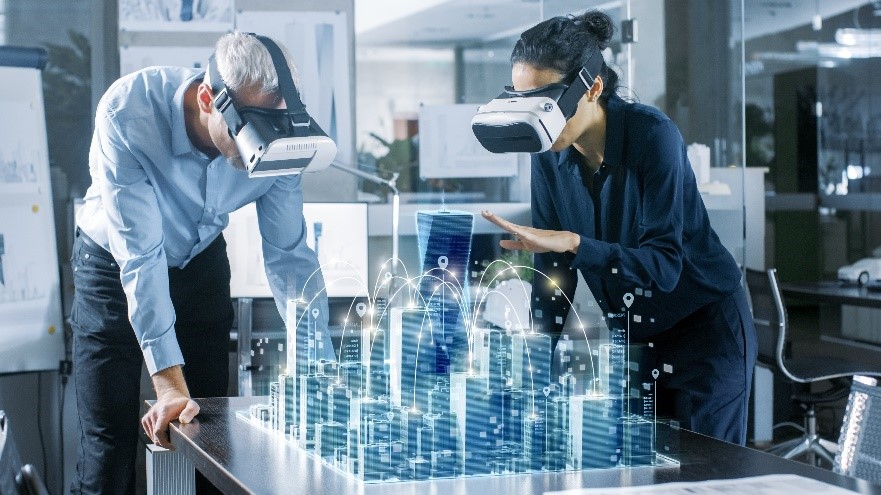
Rising of Integrated Platforms
There has also been a clear shift towards integrated platforms rather than point solutions. On the one hand, point solutions are specifically designed software tools that solve specific problems; on the other hand, integrated platforms combine multiple point solutions into a single system, offering a centralised database and a unified user interface.
A number of advantages can be gained by using integrated platforms in the construction industry. First, they increase transparency and control over the entire project, reducing the risk of errors and delays. In addition, they can streamline stakeholder communication and collaboration, improving decision-making and problem-solving. Additionally, they can reduce costs by eliminating the need for multiple software tools and reducing duplicate data.
Growing Needs for Modular Construction
Modular (or prefabricated) construction is not a new concept, but digital tools have led to dramatic growth in recent years. According to a Grand View Research report, the global modular construction market is expected to grow by 7.5% between 2023 and 2030. Modular construction involves the use of pre-manufactured modules or sections that are constructed off-site and transported to the construction site for assembly. In most cases, these modules are designed to fit together seamlessly, resulting in faster and more efficient construction than traditional stick-built buildings. As a result, construction times are shortened, waste is reduced, quality control is improved, and safety is improved.
Adopting IoT Devices for Smart and Sustainable Buildings
By integrating interconnected technologies, smart buildings become more intelligent and responsive. Various systems are controlled by automated processes to improve building performance in the long run. The sensors placed throughout a building collect data about temperature, humidity, and occupancy in real-time. By analysing this data, the building's energy use and HVAC systems can be optimised, resulting in lower energy costs and a more comfortable environment for its occupants. The use of IoT sensors allows for predictive maintenance of building systems and equipment as well. It reduces downtime and extends the lifespan of equipment, reducing replacement and repair costs.
In order to make every project a success, Glodon is committed to innovation-driven development and has made significant breakthroughs in the field of BIM, artificial intelligence, big data, cloud computing, and the internet of things. In order to strengthen its R&D capabilities, the company established research centres in China, the USA, Finland and Poland. Glodon's digital building platform is an all-in-one solution that integrates people, processes, data, technology, and business systems to promote industry transformation through data and technology.



